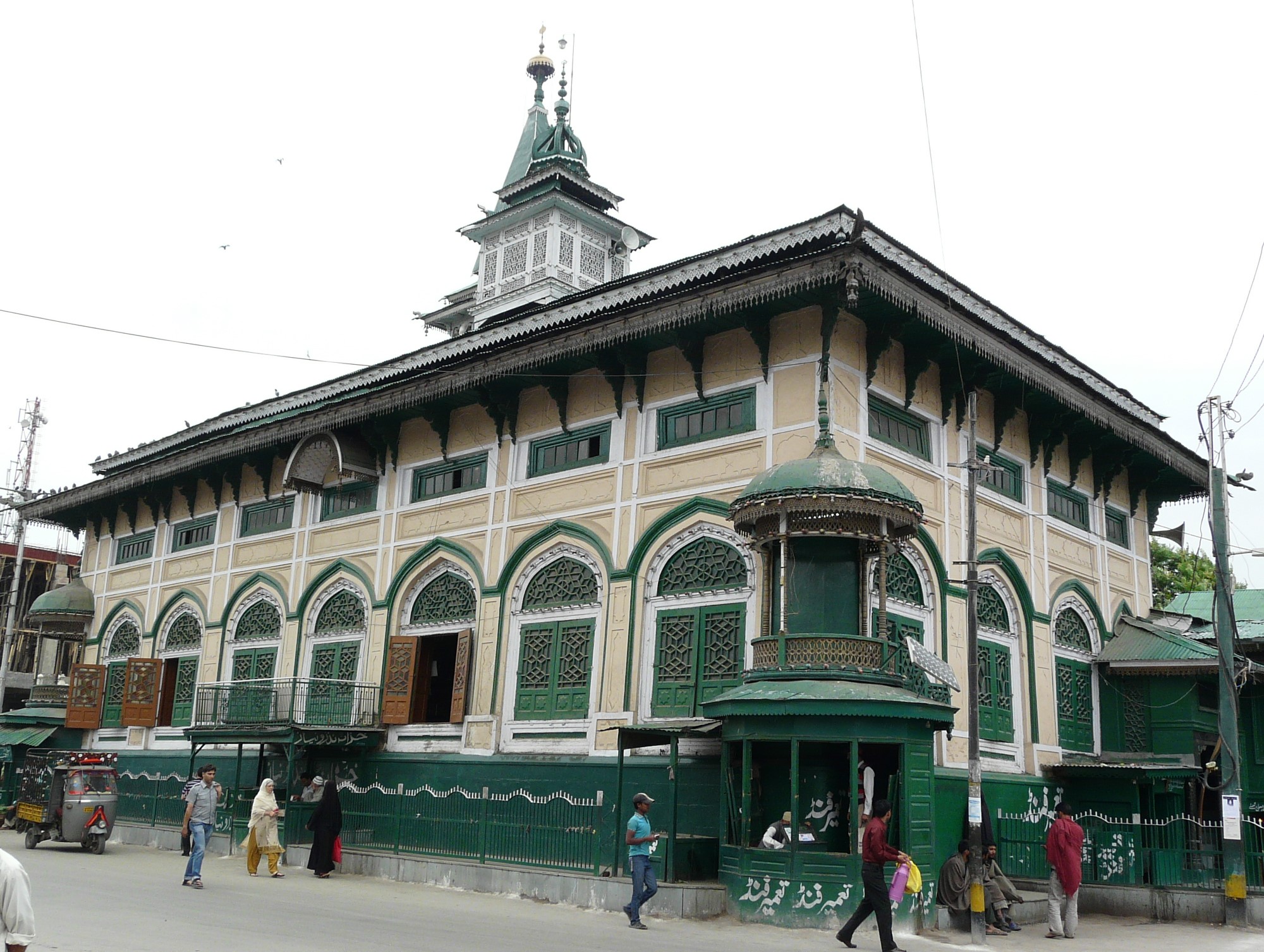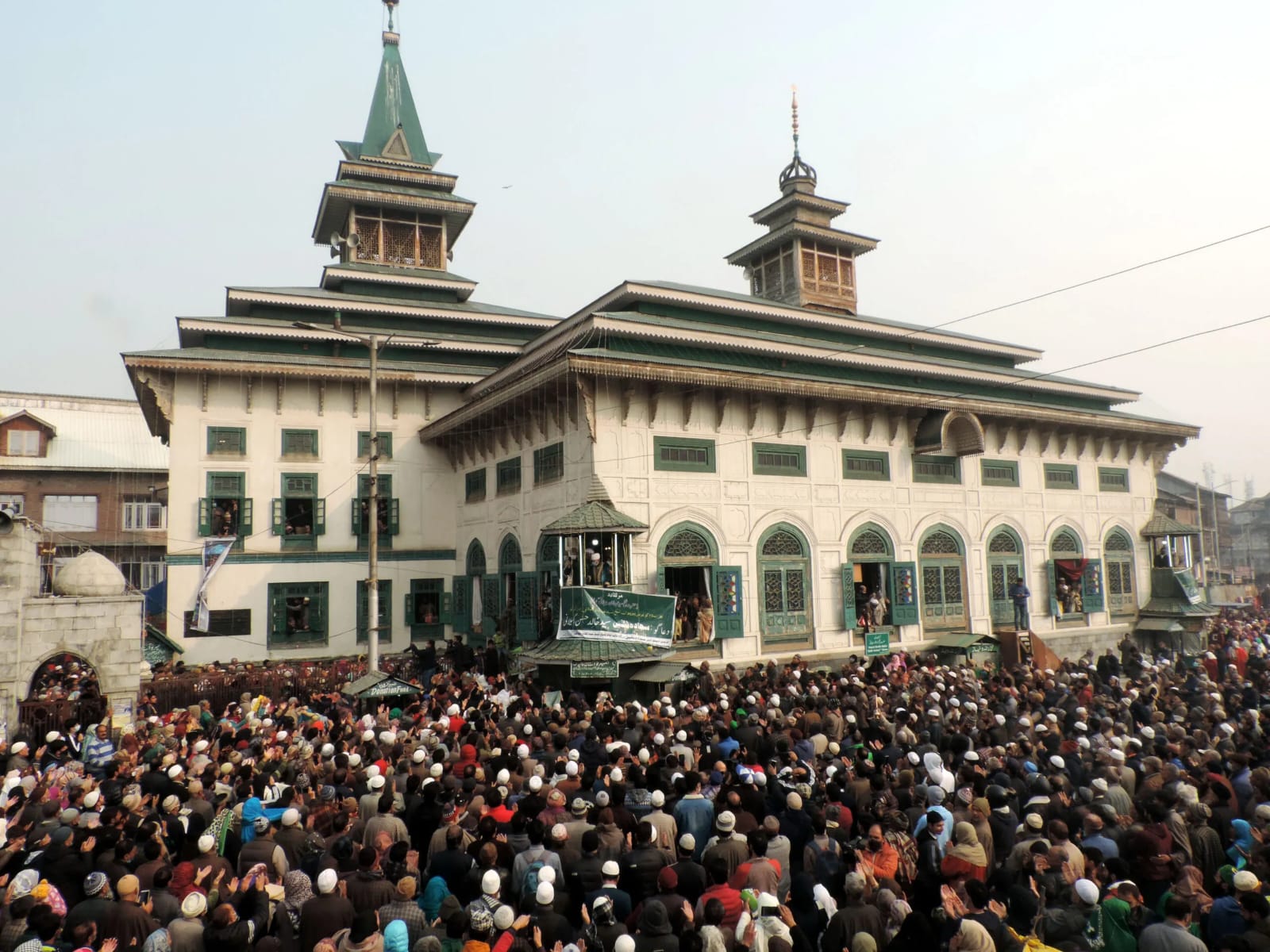From Baghdad to Kashmir, the impact of Hazrat Ghousul Azam’s spiritual journey remains alive in the hearts of millions.
By Syed Majid Gilani
Hazrat Sheikh Syed Abdul Qadir Jilani, also known as Gilani, was born in the region of Gilan (Jilan), Iraq, in 471 Hijri (1077 A.D.). He hailed from a distinguished family with a noble lineage tracing back to Hazrat Ali Murtaza (R.A.). His father descended from Hazrat Imam Hassan (A.S.), while his mother’s lineage linked to Hazrat Imam Hussain (A.S.).
Early Life and Education
Tragedy struck at an early age when his father passed away, leaving his mother to raise him alone. Despite this hardship, she was determined to provide him with the best education. By the age of eight, Hazrat had memorized the Holy Quran, becoming a Hafiz-e-Quran. At eighteen, he sought his mother’s permission to travel to Baghdad, then a renowned center of Islamic learning. Though the journey was fraught with dangers, his mother encouraged him and hid forty dinars in his shirt pocket for safety. She also advised him to always speak the truth and made him promise to do so.
During his journey, his caravan was attacked by bandits in Hamadan. When questioned about his possessions, Hazrat fearlessly admitted to having the hidden dinars. The robbers, intrigued by his honesty, presented him before their chief. When asked why he told the truth despite the risk, Hazrat explained that he could never disobey his mother’s command. The chief, deeply moved by this unwavering commitment to truth, repented for his sins and vowed to follow the righteous path. Inspired by Hazrat’s piety, he ordered the return of all looted belongings to the travelers.
Spreading Islam and Miracles
Hazrat Ghousul Azam, known for his vast knowledge and spiritual depth, devoted his life to propagating Islam through love, compassion, and wisdom. He emphasized that Islam spread not through force but through sincerity and kindness. Many non-Muslims, including Christians and Jews, embraced Islam after being inspired by his teachings. His reputation as a scholar and theologian attracted seekers from across the world, including rulers who revered his humility and steadfastness.
His mother’s teachings of honesty and righteousness remained central to his life. He spent twenty-five years wandering in the deserts of Iraq, engaging in spiritual practices and guiding people. His miracles, or “karamat,” were widely recognized. One of the most famous miracles occurred during his infancy in Ramadan when he refused milk during daylight hours, a sign of his innate spiritual awareness. On a cloudy 29th of Ramadan, when the crescent was not visible, people confirmed the beginning of the new month based on his abstention from milk, reinforcing their faith in him.
Contributions to Islamic Thought
Hazrat Gilani’s legacy is preserved through his teachings and literary works. His books, such as Futuh Al Ghaib, Aurad I Qadriyah, Ghunyatut Talibeen, and Sirrul Asrar, continue to serve as sources of spiritual and scholarly guidance. He emphasized adherence to Shariah (Islamic law) and clarified that anything beyond its boundaries was unacceptable. On the 19th of Shawwal, 545 Hijri, he delivered a sermon reinforcing the importance of Shariah compliance.
His contributions earned him numerous honorary titles, including Mohi ud-Din, Mehboob-i-Subhani, Quttub-i-Rabbani, Sheikhul Jin Wal Ins, Ghousul Azam, and Peerani Peer. These titles reflect his extraordinary influence on Islamic scholarship and spirituality.
The Dastgeer Sahib Shrine and its Significance
Hazrat Gilani’s shrine is located on the east bank of the Tigris in Baghdad, Iraq, attracting countless devotees. His connection to the Dastgeer Sahib Shrine in Khanyar, Srinagar, is of particular significance. This shrine houses a handwritten copy of the Quran by Hazrat Ali Murtaza (R.A.) and a sacred strand of Hazrat Gilani’s hair. The holy relic is displayed on special occasions, particularly during the annual Urs in the Islamic month of Jamid-us-Sani. The 11th of every Islamic month, known as Ghyarvi Sharif, is dedicated to honoring his life and teachings through Zikr Azkaar (remembrance), Khatmaat ul Moazamat (recitations), and Darood Azkaar (sending blessings upon the Prophet PBUH). Devotees also recite Kibrat Sharif, a book containing Hazrat Gilani’s praises for the Holy Prophet (PBUH).
The Arrival of the Gilani Family in Kashmir
The observance of Gyarvi Sharif in Kashmir is closely linked to the arrival of Hazrat Syed Mohammed Fazil Shah Gilani (RA), also known as Hazrat Sakhi Shah, in 1095 Hijri (1322 A.D.). Two brothers, Hazrat Syed Abul Hassan Gilani (RA) and Hazrat Syed Mohammed Fazil Gilani (RA), arrived in Srinagar and initially settled near Idd Gah, following spiritual guidance from their ancestor Hazrat Ghousul Azam (RA). Their presence transformed Khanyar into a center for spiritual seekers, drawing scholars and Sufi saints. Personalities such as Baba Usman Qadri, Khwaja Abdul Rahim Qadri, and Khwaja Mohammad Murad Tang became their disciples.
The Lineage and Spiritual Legacy
The Gilani family’s lineage traces back to Hazrat Ghousul Azam (RA) through generations of esteemed Sufi scholars and saints. The family migrated from Baghdad to Hamma and later to Thatha Sakhar, Sindh. Hazrat Syed Abul Hassan Gilani (RA), who initially settled in Srinagar, later moved to Peshawar, where his shrine, Dargah Hassan Badshah, remains well-known. He was the father of the renowned saint Hazrat Syed Shah Mohammad Ghous Lahori, whose shrine is a revered site in Lahore.
Hazrat Syed Mohammed Fazil Qadri Gilani (RA) stayed permanently in Kashmir, attracting thousands to the Silsila-e-Qadria. Under his guidance, Khanyar Shareef became the focal point of the Qadriyah order. He was succeeded by his son Hazrat Syed Mehmood Qadri Gilani (RA), followed by Hazrat Syed Ghulam-ud-Din Azad Qadri Gilani (RA) and then Hazrat Syed Buzarg Shah Qadri Gilani (RA) as Sajada Nisheen (spiritual heads) of the shrine.
The Dastgeer Sahib Shrine in Srinagar
The Dastgeer Sahib Shrine, built in 1806 A.D. in Khanyar, Srinagar, was later renovated in 1877 A.D. by Khwaja Sonaullah Shawl. This shrine embodies Kashmir’s deep-rooted spiritual heritage. Though Hazrat Ghousul Azam (RA) never visited Srinagar, his great-grandson, Hazrat Syed Sakhi Shah Fazil Gilani (RA), settled there permanently, cementing the region’s spiritual significance.
The spiritual influence of Hazrat Gilani remains strong in Kashmir, where hospitable locals have preserved meditation sites and tombs of saints. Historical records, including Aainay Fitrat by Syed Mubarak Shah Fitrat Gilani, document these events in detail.
The views expressed in this article are solely those of the author and do not necessarily reflect the opinions or views of this Magazine. The author can be reached at [email protected].


Leave a Reply